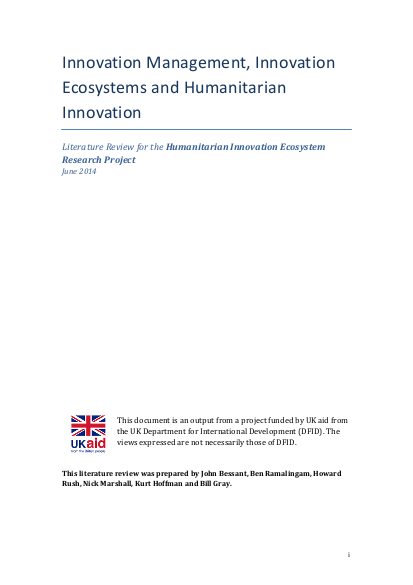
Innovation matters. In the business world this is a clear imperative – if we don’t change what we offer the world (products, services) and the ways we create and deliver them (process innovation) then we may not be in business for long. Innovation is often presented as a survival issue and this provides a powerful metaphor to focus attention on the need to manage innovation and to update our capabilities to do so on a continuing basis.
But of course there are situations – at the heart of the humanitarian sector’s concerns – where we really are talking about life and death and where change really is a survival imperative. That makes consideration of innovation in this sector an urgent challenge – and one which drives concern to learn from experience about how to repeat the innovation trick. How can we best organise to enable innovation to happen and what are the roles for key actors – donors, agencies, and most importantly users – in this emerging innovation ecosystem?
There is a very extensive literature on innovation management with the earliest papers dating back to around 1910. Given our focus on ecosystem approaches to innovation, the strategy we have taken in this literature review is to move from some basic concepts on innovation management to an understanding of current best practice and then on to new approaches that are emerging in the context of a changing technological and market landscape.